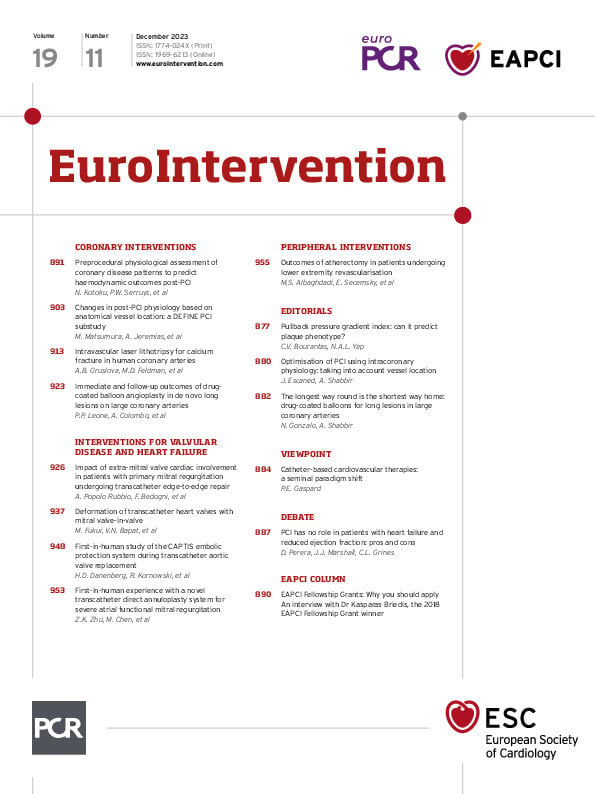Why did you apply for an EAPCI Fellowship Grant?
In Lithuania, despite robust clinical facilities, a significant gap existed in heart valve interventions; my ambition was ignited to bridge this gap. The EAPCI Fellowship Grant emerged as a pathway enabling me to acquire international experience and proficiency, imperative for enhancing catheter-based valve implantations in Lithuania. This opportunity addressed the increasing need for highly qualified specialists capable of performing intricate procedures while minimising the risk for complications.
How did you choose your host centre for your EAPCI Fellowship?
The Liverpool Heart and Chest Hospital in the UK, recognised for its extensive adult congenital heart disease program and high rate of heart valve interventions, resonated with my commitment to excellence and specialisation. It was a profound honour to gain insights and learn procedures from world-renowned, leading interventional cardiologists in this high-calibre institution.
What did you focus on during your EAPCI Fellowship?
A concrete focus during my fellowship was to achieve proficiency as an independent primary operator in transcatheter aortic valve implantation (TAVI). I dedicated myself to understanding every potential procedural complication and meticulously mastering steps to ensure procedural success. Beyond technical skills, I was keen to grasp the comprehensive logistical steps, including patient referrals, outpatient clinics, and multidisciplinary team (MDT) meetings, establishing a solid foundation in this service.
Did the EAPCI Fellowship fulfil your objectives?
The EAPCI Fellowship proved transformative: working within the English National Health Service (NHS) enriched my understanding of principles like clinical effectiveness, risk management, and continuous learning and development. I actively engaged in multiple facets of structural heart interventions, contributing to, and learning from MDT meetings, patient screenings, outpatient clinics, without overlooking the on-call night shifts. This comprehensive involvement reinforced my confidence and expertise, equipping me for future challenges and opportunities.
What difficulties did you encounter during your fellowship?
As with any move to another country, there are differences rather than difficulties, and I encountered valuable challenges that moulded and refined my professional journey. Every new obstacle became a learning opportunity, bolstering my resilience, confidence, and proficiency, and contributing to an enhanced sense of achievement and progress.
How has your EAPCI Fellowship benefitted your career development?
Post-fellowship, my career witnessed a significant upsurge. The international experience endowed me with a distinctive reputation and a solidified position within Lithuania’s structural heart intervention teams. This foundation facilitated my engagement in clinical trials with new medical devices and first-in-human experiences in structural heart interventions. My endeavour didn’t stop there. I was privileged to win a scholarship from the European Society of Cardiology to pursue the Executive Master’s program in Health Economics, Outcomes, and Management in Cardiovascular Sciences at the prestigious London School of Economics and Political Science, further refining my skills in health economics and management. Now, I actively contribute to the elevation of the healthcare services in Lithuania, applying my accumulated knowledge and fostering international collaborations. My responsibilities as a lecturer at the Faculty of Medicine of the Lithuanian University of Health Sciences, coupled with my full-time clinical role, showcase the comprehensive enhancement of my career and contributions to healthcare. Having successfully earned my PhD, I continue to leverage this academic accomplishment to further amplify my impact in the medical field, underscoring my commitment to advancing healthcare standards both nationally and internationally. Finally, after achieving proficiency in TAVI procedures, I have proudly become a TAVI proctor for many renowned medical companies. This role allows me to share my experiences and skills globally, further enriching the professional community and contributing to the advancement of cardiovascular interventions worldwide.
What advice would you have for future applicants?
Potential EAPCI Fellowship Grant applicants, seize this life-altering opportunity with both hands. This platform is not just a stepping stone for your professional growth but also a chance to make a monumental impact on global cardiovascular healthcare. This journey, while demanding and filled with challenges, will be the catalyst for your extensive learning, growth, and the realisation of your most ambitious dreams in the world of cardiovascular care. Embark on this extraordinary journey, arm yourself with newfound knowledge, and let your contribution resonate worldwide.
Apply now for the 2024 EAPCI Fellowship Grants

